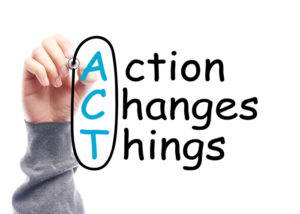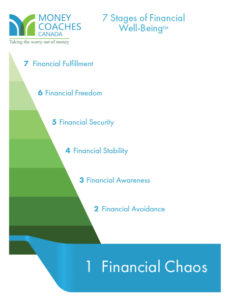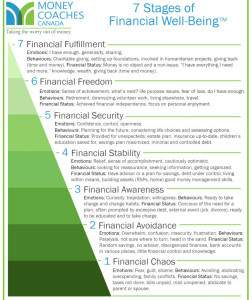By Sheila Walkington, co-founder and CFO Money Coaches Canada and the Women’s Financial Learning Centre

Most people procrastinate from time to time, it’s human nature to put off tasks we believe to be unpleasant or time consuming. But the habitual putting off of our responsibilities, especially our financial responsibilities, transforms procrastination into avoidance. Avoidance —Stage 2 of the 7 Stages of Financial Well-BeingTM —is one of the most potentially damaging stages on the path to financial fulfillment.
Are you in Avoidance?
It’s essential to understand that financial well-being comes with a deeper understanding of where you stand with money, emotionally and financially, developing concise and attainable goals, getting organized and implementing a manageable plan to move forward. The 7 Stages of Financial Well-BeingTM is a framework that will help you better understand where you are, and what actions to take, as you move towards Financial Fulfillment. Continue reading

 The base of the 7 Stages of Financial Well-BeingTM pyramid represents those furthest removed from feeling in control and empowered financially. For many, Chaos represents their starting point on their journey to Financial Fulfillment.
The base of the 7 Stages of Financial Well-BeingTM pyramid represents those furthest removed from feeling in control and empowered financially. For many, Chaos represents their starting point on their journey to Financial Fulfillment.

 Happy New Year!
Happy New Year!



